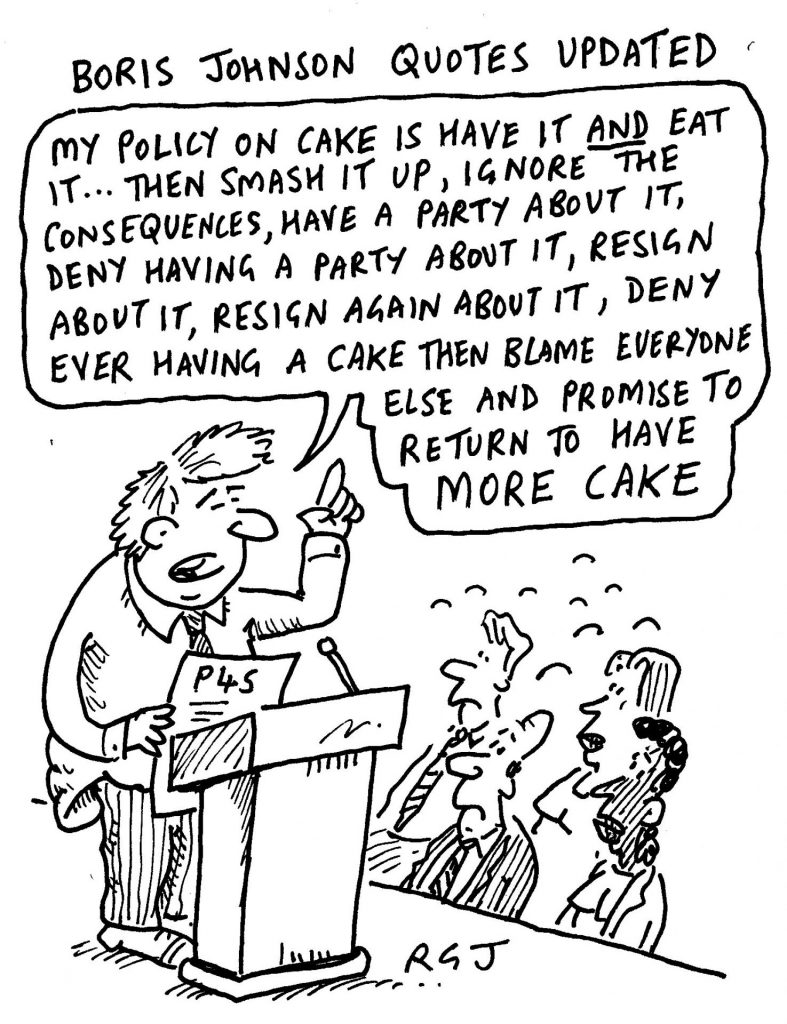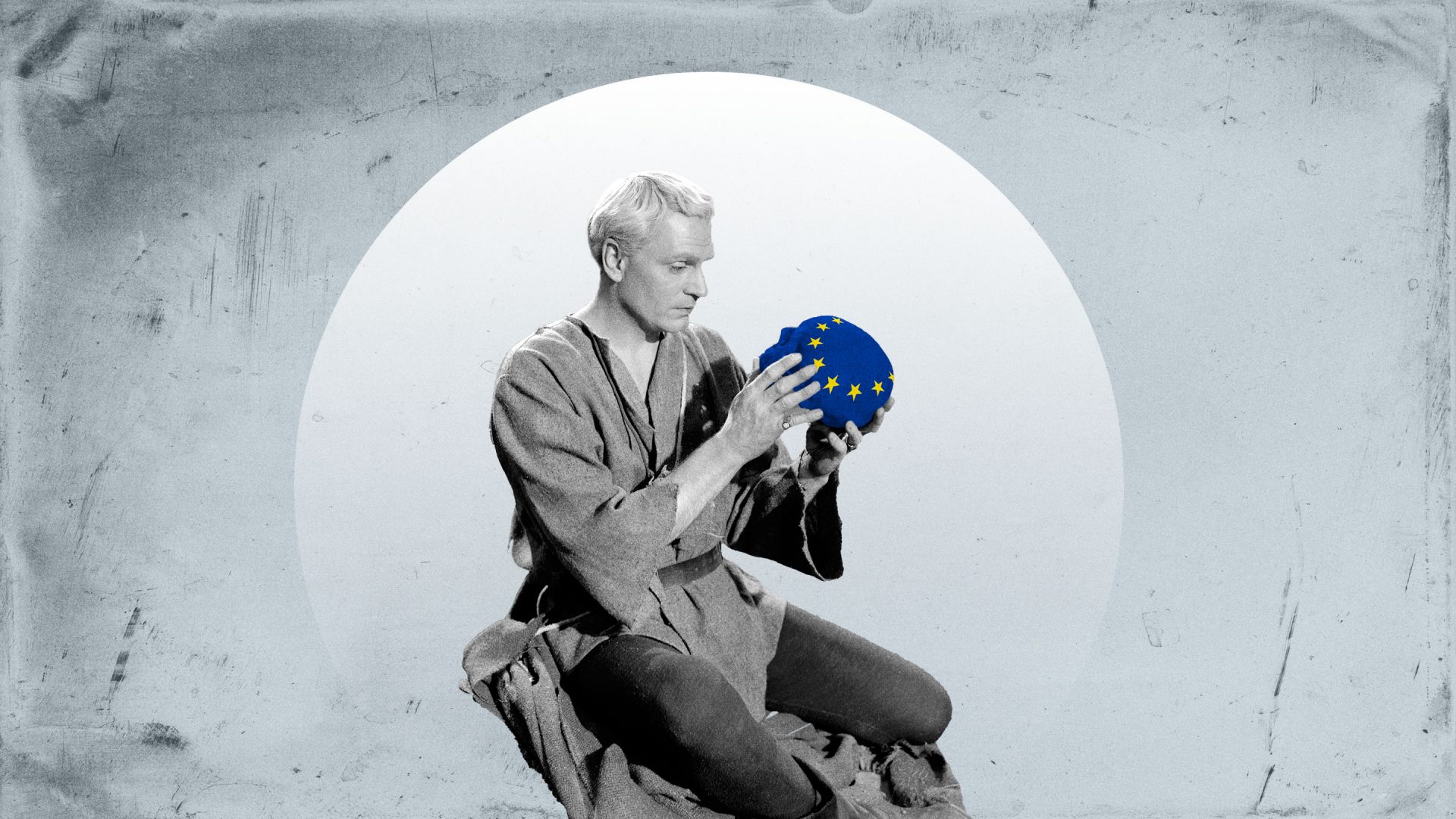“To do or not to do? That is the question …”
Shakespeare, and especially Hamlet, are front of mind after seeing a truly brilliant play, The Motive and The Cue, about Sir John Gielgud’s direction of Richard Burton in Hamlet in New York in 1964. Sounds niche? It is one of the best things I have seen in years, and the standing ovation at the end was instant, long and loud. It’s at the National Theatre. Five-star recommendation from your editor-at-large.
So, “to do or not to do?” The question relates not to life and death, but whether to accept the invitation of BBC Question Time to be on the panel for the Clacton-on-Sea special next week, with an audience made up entirely of 2016 Leave voters. No sooner had the format been announced than social media flooded with complaints about “typical BBC pro-Brexit bias”, many asking, not unreasonably: “Would they ever have a Remainer-only audience?”
The answer is almost certainly no, though that is likely to be what we have, or something close to it, when we host the New European’s Brexit seventh anniversary event (tickets available here) a week after Question Time. We have been struggling, as did they, to get anyone on the panel prepared to offer continuing unbridled support for Brexit.
But if you think about it, the fact that the BBC wouldn’t even think a Remainer fest was worth doing is because they know that few of those who voted Remain are likely to have changed their minds, or changed their assessment as to whether Brexit would be good or bad for the country. That they think the focus should only be on Leave voters might be just one more sign of the acceptance that the dial on Brexit public opinion is moving against the whole project.
I would be surprised if that many on the Leave side are exactly gagging to get back into the European Union, but then again they have that in common with not just the Tories, but the Labour frontbench too. A more interesting question will be whether Leavers think that Brexit is going well or badly; or whether it is going as they expected, or hoped.
As I have been recording here, almost all of the people in all of the audiences I have addressed recently have given a total thumbs down to the notion it is going well. I would not expect anything like that in Clacton, but it will be interesting to see the extent to which any of them feel let down, and whether they are at least willing to hear some factual analysis of the gulf between the promises made and the reality with which we are all now coping.
So Clacton here I come. Wish me luck.

Hamlet is often front of mind when I think of my deceased father, who dropped me off at university with a note on which was written:
This above all; to thine own self be true,
And it must follow, as the night the day,
Thou canst not then be false to any man.
It was front of mind again when I wrote But What Can I Do?, and admitted that one of my remaining ambitions is to get a new word invented by me into the Oxford English Dictionary. It is all part of the obsession with the vast volume of words and phrases invented by Shakespeare that we use in virtually every conversation we ever have. Go online and check it out. You’ll be amazed.
My word was persevilience, a combination, obviously, of perseverance – keeping going when things are tough – and resilience – coming back stronger from setback. I even took to a little iambic pentameter activity of my own, bastardising the “to be or not to be” speech to include my word, whose five syllables took up half of a line.
So I was thrilled, doing a talk at a housing sector event hosted by the property firm Mount Anvil, when the first question from someone who had read the book was about persevilience. I was asked about it again when speaking at the Tortoise Kite Festival in Oxfordshire. Come on, OED, make an old man happy.
I would like to cite a couple of football managers, both Scots, who have shown true persevilience. David Moyes has had plenty of ups and downs, and taken a fair bit of abuse, in a long managerial career. I remember seeing him privately when he was at Manchester United, having sought to fill the large shoes vacated by Alex Ferguson. He had something of a haunted look, and not long afterwards was gone.
Quite a setback. Persevilience required. There have been more ups and downs since, but the biggest up of all came in Prague recently where he led West Ham, some of whose fans had been far from supportive of Moyes, to a European final win that saw them lift their first trophy in 43 years. I loved his dressing-room Dad dancing and his over-the-top celebration, and his placing of his medal around his 87-year-old father’s neck.
Persevilient Scots manager No 2 is Malky Mackay. Yes, he fired off some unwise private messages about the then owner of Cardiff City, and was dubbed racist for it. I tend to stand by friends and did so then, and I know of few people who are aware of the whole story who are not supportive of him. Had that whole episode never happened, it is likely he would by now be an established Premier League manager.
Instead he is up in the Highlands at Ross County, who finished second-bottom in the Scottish Premier League this season, requiring them to go into a two-leg playoff against Partick Thistle, second in the Championship, to stay in the top division. Two-nil down after the first leg, then three down with 20 minutes to go in the second leg. Party time for the Patrick fans. Then County scored three goals, the third in injury time … into extra time, still 3-3, penalties. And Ross County won. Amazing.
He didn’t get the mega-coverage Moyes has had in recent days. But the look on his face as that final whistle went and fans swarmed on to the pitch in jubilation, was an identical display of persevilience-induced happiness and fulfilment. Deserved.
Driving up to Windermere for the Great North Swim at the weekend, we chanced upon a terrific Radio 4 play based on the role played by Elspeth Howe in the demise of Margaret Thatcher. She was the wife of Geoffrey Howe, whose resignation speech in the Commons was one of the most devastating in political history, all the more so because of Howe’s reputation for being a poor and dull speaker. The steel, and killer lines, are long thought to have been the work of Elspeth.
Two things came to mind as we listened, amid the latest Johnson blah raging elsewhere across the radio that day. First, just how superior the top-flight politicians we had then were in comparison to those we have now. But second – some of the wrong ’uns just never go away.
There was a tiny part in the play for John Redwood, rising in the Commons to give Thatcher and Howe the benefit of his wisdom in how to deal with Europe. Two minutes after the play ended, he popped up in the news, still blahing on about Boris Johnson, giving Rishi Sunak the benefit of his wisdom in how to deal with Tory Party infighting. An expert if misguided expert indeed.




